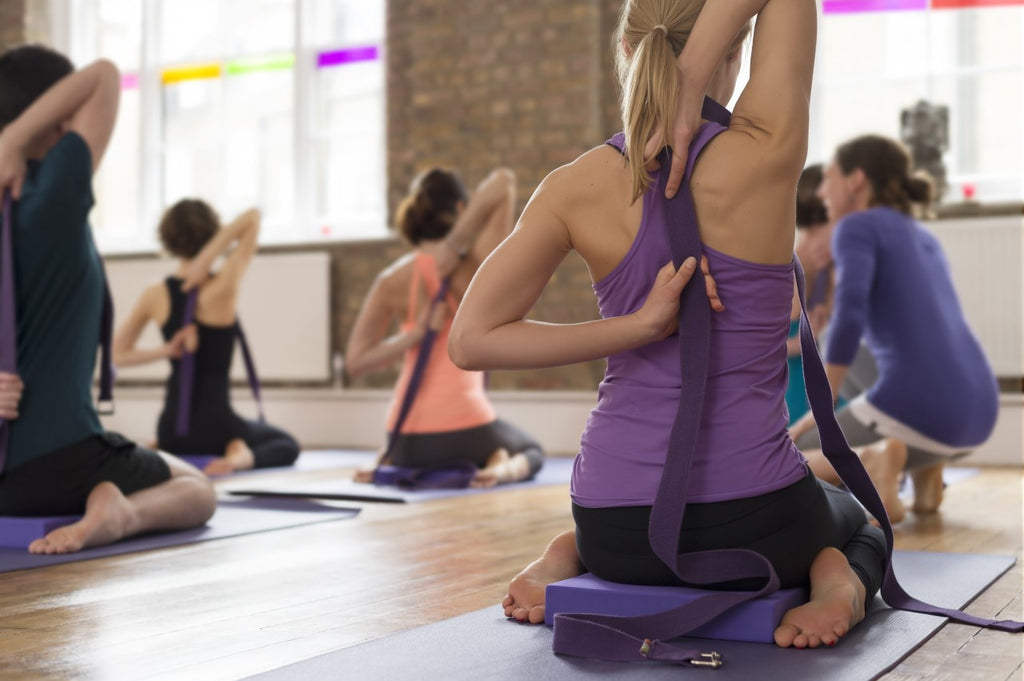Shop
BY PRODUCT
BY INTENTION
Discover
ABOUT US
COMPANY

Yoga is an extremely popular practice these days. Millions practice it all over the globe, with great benefits. The list below is intended to provide you with support for you your yoga practice. Following these 10 pointers would enrich your yoga practice, making it more effective and enjoyable.
1. Arrive early to class; rushing in, breathing heavily, feeling stressed for being late, are not a conducive beginning to class. Arriving early would also enable you to easily apply the following point.
2. Meditate before class. It doesn’t have to be a long meditation. Even 5 minutes of sitting breathing meditation, or a body scan, would be immensely helpful to your asana (physical) practice. It would ensure that you begin the movement of your body with heightened body-awareness and great connection to your breath. It would also create a buffer from your day, allowing you to let go of everything you experienced up to now, and create a peaceful practice.
3. Avoiding a heavy meal at least 2 hours before class is important. If you have just eaten your body is digesting the food, making you tired and unable to fully concentrate on your breath and the movement of the body.
4. During class, your breath is your guide, your master, your best friend. In yoga, breath is the name of the game, it tells you exactly where you are with your practice. When you are panting, breathing hard or fast, it is an indicator that you are pushing too far, putting too much effort into your practice. If you observe yourself breathing hard, relax your practice and re-engaged with calm breath.
5. Your breath is your focal point, it is the heart of your meditation during the physical practice. It enables you to turn your practice into a meditative one. If you find your mind wandering to stories about things that happened during the day, or the food you will have tonight when you are back home, your breath would be the place where you send your awareness to rest so that you are present again. Your breath is your anchor during Yoga practice.
6. When class has ended, don’t jump back immediately into the ‘doing’; allow yourself a transition time where you don’t check your phone right away and simply enjoy the juicy bliss of yoga.
7. As you practice, your attention might wander as you look around the room and see other practitioners in their asanas (poses). We all tend to compare ourselves to other people, and in yoga this could be a harmful tendency. There will always be someone who is more flexible or stronger than you are; keep your attention with yourself and your own body, bringing your full attention to your breath and body movement.
8. According to your own personal patterns, you might be working too hard or not hard enough during class. In other words, you either push too far (which could easily lead to injury) or not push far enough (which would lead to boredom and mind wandering). Your task is to find your edge – which is as far as you could comfortably go without feeling any pain or exaggerated pressure. When you find that point, that edge, you spend a few breaths relaxing into it.
9. There are many different Yoga styles and numerous teaching styles. If you went to a yoga class that didn’t feel right it does not mean that yoga isn’t right for you; instead, that yoga style or that particular teacher is not right for you. Research about the different options and find the one that is most appropriate for your current needs.
10. Yoga practice is a microcosm of your entire psychological and spiritual experience. Anything you experience on the mat you are probably experiencing at other places in your everyday life as well. If you find that you judge and criticise yourself during your practice, work too hard, being distracted easily – you are probably experiencing the same issues at other points during your day. Use the yoga practice to learn more about yourself and then find ways to implement your insights at other meaningful moments during your day.
I’m sure there are other helpful suggestions you could make – feel free to add them as a comment, to support fellow yoga practitioners.
I hope your yoga practice would make bring you closer to your authentic self, deepen your sense of peace and tranquility, and offer you lasting happiness.
Dr. Itai Ivtzan is a positive psychologist and a senior lecturer at the University of East London. His work is focusing on Positive Psychology, Mindfulness, and Spirituality. You can find his workshops, books, and scientific work on his website: http://www.awarenessisfreedom.com/